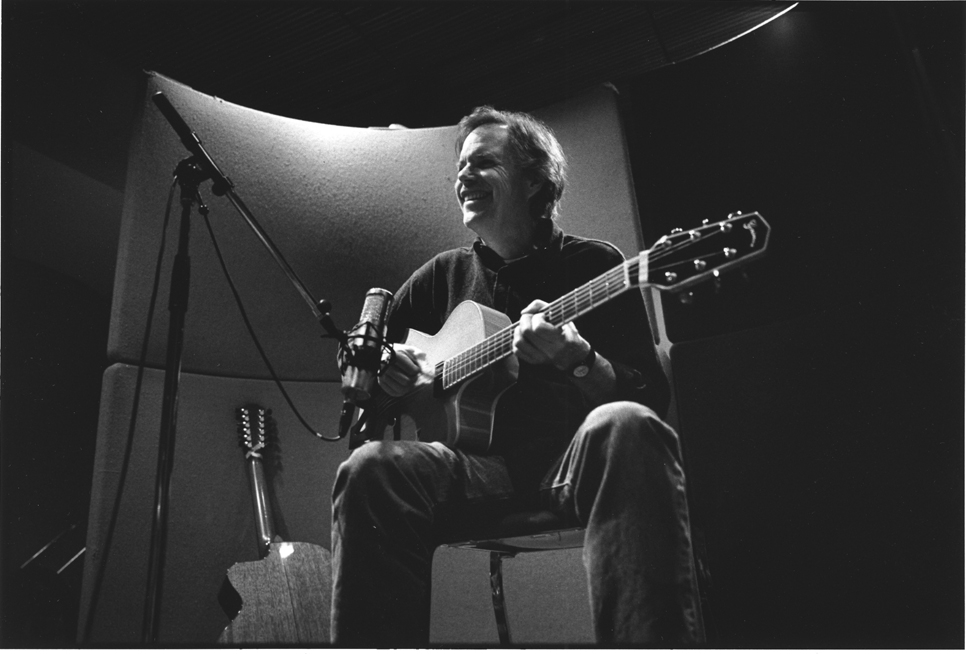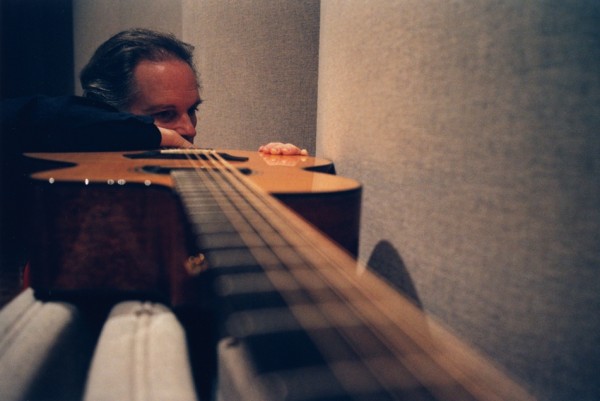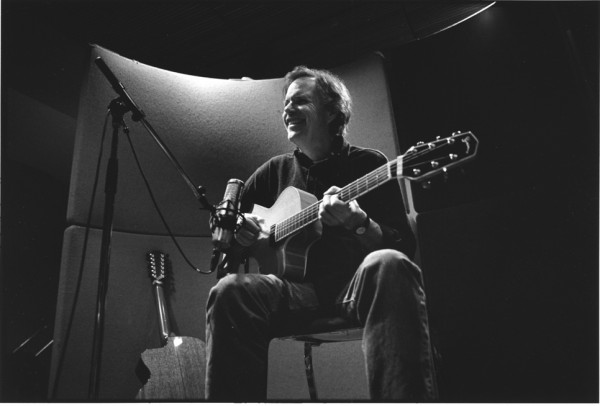
11 Aug The Palm: Leo Kottke in Concert August 22
Go to Leo Kottke’s website: the “Tour Schedule” page is written in reverse type against a black background and features an armadillo – an animal with a leathery armored shell. (Is there a metaphor and/or big hint lurking in the image?) There you will learn that Telluride is his second stop en route, following a gig at City Winery in Chicago. The notes say the legendary acoustic guitarist is scheduled to perform Friday, August 22, at “The Michael Theatre,” which in our world is the Michael D. Palm. Doors at 8 p.m.; concert starts at 8:30 p.m.
Otherwise you will learn not much other than a list of his recordings, the names of his management and booking agencies, and the fact that besides being a private person, Kottke is also very very funny. The “Notes” page features a walk down memory lane about the time he was a trombone student in Oklahoma.
“I never guessed my trombone teachers might be trombonists; I never considered that a life in trombone might differ from the one I was imagining…a life in hotels, in black suits and skinny ties, Ray-Bans indoors, by someone who never played much and was depressed.
(By the time I knew depression was free, and that I didn’t have to play trombone to be depressed, I’d imitated its “mood” for so long that I couldn’t refuse the Damned Cloud when it did arrive…”
Continue reading here, under sub-heading Notes.
I have had the privilege of interviewing Leo Kottke on successive encores in Telluride over the years. Here’s what I gleaned watching the maestro perform and from those interviews.
On stage, Kottke’s synapses explode like popcorn. His breath-taking virtuosity on six- and 12-string guitar has influenced generations of fingerpickers. Signature non sequiturs which pepper the pauses between numbers are shoulder-shakers: the man is Lewis Carroll with a guitar, esoteric allusions and all. And everyone in the audience always seemed willing to follow him down each and every rabbit hole.
Kottke’s quick wit is matched by his astounding virtuosity on his instruments. For the past 40+ years, he has been indefatigable in his pursuit of a unique musical vision that has placed him among the foremost acoustic guitar stylists of our time – any time for that matter. Over the years, Kottke has recorded with such musical greats as Rickie Lee Jones, Lyle Lovett, The Violent Femmes and John Gorka. He has played with musicians as diverse as Big Head Todd and the Monsters and the late jazz great Joe Pass. His own musical style defies categorization, but can best be described as jazz with a touch of folk and classical smeared with the street.
Asked how he got here from there, Leo Kottke is – naturally – prone to tell fictionalized versions of his life. One story written on the jacket of an early album says he was born in Athens, Georgia – which is true – “on the morning of September 11, 1867.” Not true. Beyond that point, the jacket reads, “his history is unclear.”
Still true.
Turns out, Leo Kottke was raised in in 12 different states. He absorbed a variety of musical influences as a child, flirting with both violin and trombone, before abandoning Stravinsky for the guitar at age 11.
“The violin hurt, you know, trying to clamp that thing under your chin. It’s a nasty little instrument to hand to a five-year-old. My mom, a cruel woman, gave it to me. Later on in life, however, the violin becomes more rational and much easier to play than a guitar. Next I tried trombone. Somewhere around Muskogee, Oklahoma I gave that up for a guitar with a cowboy stenciled on the front. It too was a gift from my mom, the very same woman I just referenced in a not so flattering way. Neither the violin nor the trombone took.”
Kottke claims the guitar actually came and got him.
“It really did. I suddenly belonged to it. Some people are lucky that way. I remember the weather, the room, the sky, everything, when I made my first E chord. After that, everybody else could take a flying leap. I knew I’d be playing guitar in some way for the rest of my life, but I never dreamed the guitar could become a job, never mind that I could make a living playing. I still don’t consider what I do a career and am quite surprised I am getting away with it.”
Wikipedia publishes an online bio of Kottke’s life. Is he popped? Is that story true?
“There’s some screwy stuff in there, but it’s pretty close. I just wish whoever wrote it liked me, however. It’s sort of like an encomium from Ted Bundy.”
Here are the, ahem, “facts” – or at least the official word from someone on the inside.
After adding a love for the country-blues of Mississippi John Hurt to the music of John Phillip Sousa and Preston Epps, Kottke joined the Navy underage, to be underwater, and eventually lost some hearing shooting at lightbulbs in the Atlantic while serving on the USS Halfbeak, a diesel submarine.
Kottke had previously entered college at the U of Missouri, dropping out after a year to hitchhike across the country to South Carolina, then to New London and into the Navy, with his twelve string.
“The trip was not something I enjoyed,” he has said, “I was broke and met too many interesting people.”
Kottke came of age during the great folk/country guitar boom of the 1960s and early 1970s, an era when baby boomers flocked to concerts by Pete Seeger, Doc Watson, David Bromberg, John Renborn, Chet Atkins, Roger McGuinn, Merle Travis and John Fahey. Also to jazzier jams led by John McLaughlin, Django Reinhardt, Les Paul, Jim Hall and Joe Pass. Kottke cites Seeger, Hall, Pass, Reinhardt as strong influences, as well as the brightly rolling five-string banjo style of bluegrass great Earl Scruggs.
Discharged in 1964, he settled in the Twin Cities area and became a fixture at Minneapolis’ Scholar Coffeehouse, which had been home to Bob Dylan and John Koerner.
After sending tapes to guitarist John Fahey, Kottke was signed to Fahey’s Takoma label, releasing what has come to be called the Armadillo record. Fahey and his manager Denny Bruce soon secured a production deal for Kottke with Capitol Records. Kottke’s 1971 major-label debut, “Mudlark,” positioned him somewhat uneasily in the singer/songwriter vein, despite his own wishes to remain an instrumental performer, still his career flourished at the label.
Kottke has been awarded two Grammy nominations; a Doctorate in Music Performance by the Peck School of Music at the U of Wisconsin, Milwaukee; and a Certificate of Significant Achievement in Not Playing the Trombone from the U of Texas at Brownsville with Texas Southmost, College.
For more, click the “play” button and listen to our most recent chat. But the interview comes with a warning label: Talking with Kottke is a bit like talking to Wile E. Coyote. The man is elusive, cryptic and a prankster blessed with gallows humor. Here’s one more from an earlier conversation:
“I get out of bed in a good mood. Matter of fact, if I want to feel better, I go to bed. I’ve done this since the sixth grade, but now it works. And I met somebody at a festival this year whose only sticking point in her divorce was custody of my records.”





Sorry, the comment form is closed at this time.